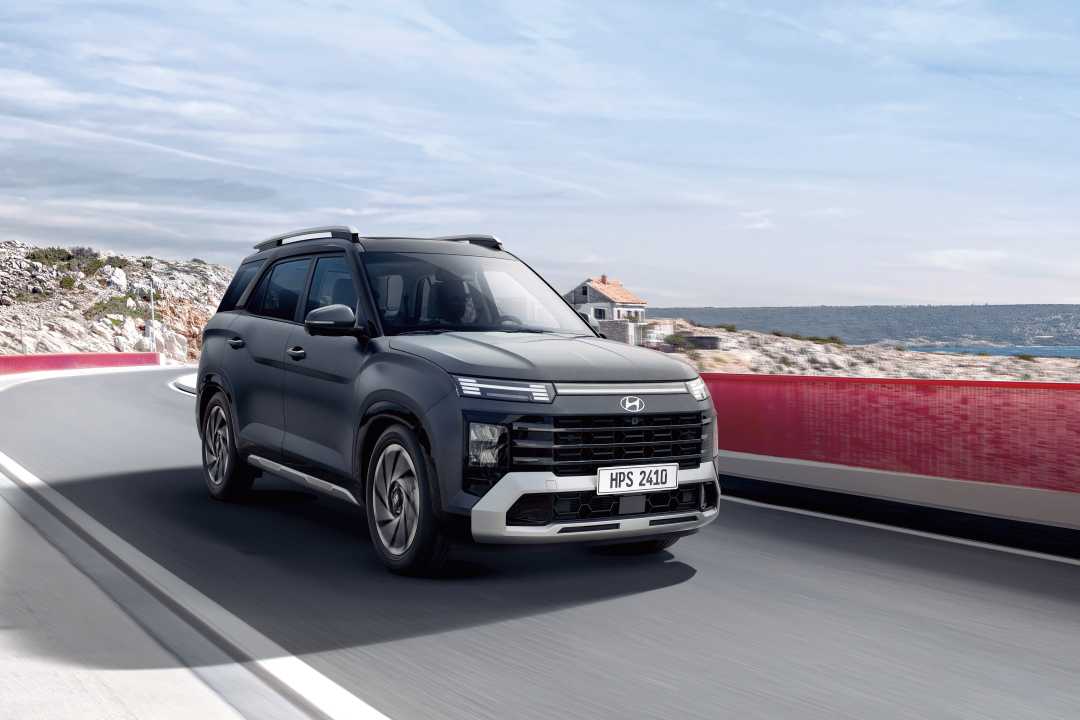Hyundai Motor Company, the renowned South Korean automobile manufacturer, has set a bold objective to significantly enhance its global vehicle production capacity by an additional 1 million units by the end of this decade. Notably, a substantial portion of this growth—25%—is earmarked for India, which ranks as Hyundai’s third-largest market following South Korea and the United States.
Currently, Hyundai Motor India boasts a production capacity of 824,000 units annually, achieved across its two fully integrated manufacturing facilities located in Sriperumbudur, Chennai. Recently, Hyundai made a strategic move by acquiring an additional plant situated in Talegaon, Maharashtra, from General Motors, which had exited the Indian market a few years ago.
The acquisition cost was approximately Rs 787.2 crore. Hyundai anticipates commencing production at this new Talegaon facility in the latter half of the upcoming financial year. Once operational, this plant will increase Hyundai’s total production capacity in India to 994,000 units per year. With the plant’s full-scale operation, the capacity is expected to reach 1,074,000 units.
Hyundai’s future plans include transforming its Chennai plant into a hub dedicated to the production of electric vehicles (EVs) and sport utility vehicles (SUVs). Presently, Hyundai offers a diverse range of 13 models, encompassing sedans, hatchbacks, SUVs, and EVs. The company has already introduced two electric models in India—the Kona and the Ioniq 5—but is yet to unveil a mass-market electric vehicle. However, it is anticipated that an electric version of the popular Creta mid-size SUV will be launched in early 2025.
In addition to its expansion efforts in India, Hyundai is also bolstering its production capabilities in South Korea with a new electric vehicle manufacturing facility, which will have a production capacity exceeding 200,000 units. Moreover, the company is establishing Completely Knocked Down (CKD) assembly plants in countries such as Vietnam, Saudi Arabia, and Algeria, collectively adding over 250,000 units to its production capacity.
Additionally, a new Hyundai Motor Group Manufacturing America (HMGMA) plant in the United States will contribute a capacity of 300,000 units. Hyundai has committed to investing a substantial KRW 120.5 trillion globally through 2033, with approximately 45% of this sum allocated for research and development and 43% for capital expenditures. For its operations in India, the company plans to invest around Rs 32,000 crore (equivalent to KRW 5.08 billion).
Hyundai’s ambitious targets include achieving annual sales of 5.55 million units by 2030, reflecting a 30% increase from the sales volume in 2023. Within this target, electric vehicles are expected to represent 30% of total sales, with the company aiming to sell 2 million EVs annually by the decade’s end. In response to the recent slowdown in demand for electric vehicles, Hyundai Motor is developing a new Extended Range Electric Vehicle (EREV) under its Hyundai Dynamic Capabilities strategy.
This innovative EREV will integrate the benefits of both internal combustion engines (ICE) and electric vehicles. It features a unique new powertrain and power electronics system designed to provide four-wheel drive through the application of dual motors. The EREV will operate primarily on electricity, with the internal combustion engine used exclusively for battery charging.
Hyundai plans to expand its EV portfolio to 21 models, spanning from affordable to luxury and high-performance categories. Additionally, the company intends to double its hybrid vehicle offerings to 14 models, including those under its luxury Genesis brand. Hyundai’s management has indicated that the expansion of hybrid models will be tailored to meet regional demands, including in South Korea and Europe.
This strategic hybrid deployment plan is expected to enhance market flexibility. In light of the growing consumer acceptance of hybrid-powered vehicles, Hyundai is also exploring entry into the hybrid market in India. The company aims to address the current deceleration in EV demand by expanding its hybrid and EREV offerings and gradually increasing its EV lineup by 2030, anticipating a recovery in EV demand by then.







